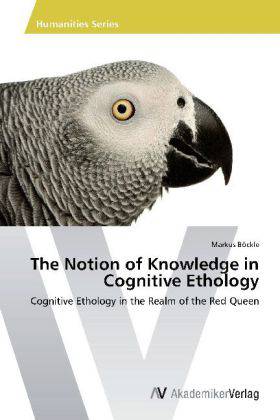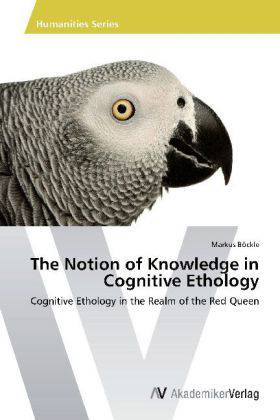
- Afhalen na 1 uur in een winkel met voorraad
- Gratis thuislevering in België vanaf € 30
- Ruim aanbod met 7 miljoen producten
- Afhalen na 1 uur in een winkel met voorraad
- Gratis thuislevering in België vanaf € 30
- Ruim aanbod met 7 miljoen producten
Zoeken
The Notion of Knowledge in Cognitive Ethology
Cognitive Ethology in the Realm of the Red Queen
Markus Böckle
Paperback | Engels
€ 58,45
+ 116 punten
Omschrijving
Scientific realism regards the world as principally natural and in this natural world different kinds of objects can be found. These so-called natural kinds are the focus of scientific work. Scientists seem to reveal the microstructural characteristics that underlie our human perception. Based on such a naturalistic understanding also epistemology has been naturalized. Hilary Kornblith proposes that knowledge itself is a natural kind and thus constituted by nature. Knowledge has thus to be investigated with the best science at hand for him cognitive ethology. This work critically investigates Kornblith s approach and tries to revise the arguments proposing ethology as the right natural science for investigating knowledge. For this purpose the theoretical framework of ethology will be considered. Additionally, to understand the way ethologists use the notion of knowledge some recent experiments in cognitive ethology are presented. The aim is to propose a naturalized epistemological approach that does not claim to be the only way to investigate knowledge, but rather proposes an interdisciplinary approach to develop an understanding of knowledge from various perspectives.
Specificaties
Betrokkenen
- Auteur(s):
- Uitgeverij:
Inhoud
- Aantal bladzijden:
- 124
- Taal:
- Engels
Eigenschappen
- Productcode (EAN):
- 9783639451399
- Uitvoering:
- Paperback
- Afmetingen:
- 150 mm x 221 mm
- Gewicht:
- 188 g

Alleen bij Standaard Boekhandel
+ 116 punten op je klantenkaart van Standaard Boekhandel
Beoordelingen
We publiceren alleen reviews die voldoen aan de voorwaarden voor reviews. Bekijk onze voorwaarden voor reviews.











